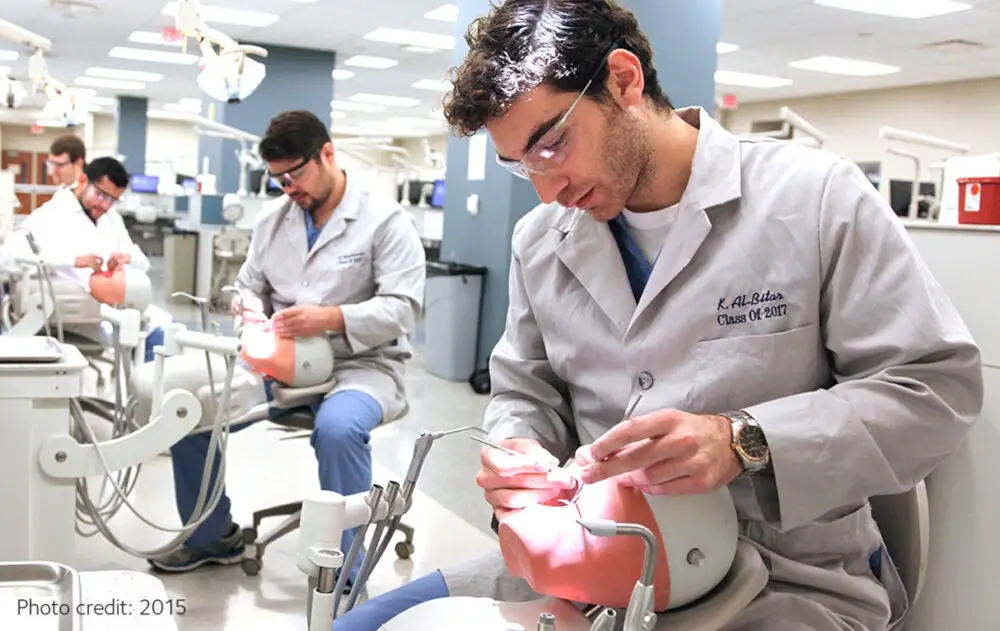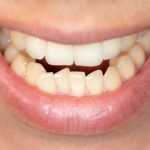Terrible Consequences: What Happens When You Don’t Brush Your Teeth Regularly

It’s no secret that brushing your teeth regularly is a crucial part of maintaining good oral health. However, many people still neglect this fundamental habit, which can lead to a host of terrible consequences. When you don’t brush your teeth regularly, you’re inviting a whole range of dental problems, from cavities and gum disease to bad breath and tooth loss. In this article, we’ll explore the dire consequences of not brushing your teeth regularly and why it’s so important to make this habit a part of your daily routine. Ignoring your oral hygiene can lead to a domino effect of problems that can have severe consequences on your overall health. Poor dental hygiene can cause plaque buildup, which can harden into tartar that can only be removed by a dentist. This tartar can irritate the gums, causing them to become inflamed and leading to gingivitis, the first stage of gum disease. If left untreated, gum disease can progress to periodontitis, which can cause tooth loss and even affect the bones and tissues that support your teeth. Additionally, poor oral hygiene can lead to bad breath, which can affect your social and professional life. In the next sections, we’ll delve deeper into these consequences and how they can affect your health and well-being.
Maintaining good oral hygiene is essential to avoid various dental problems. Brushing your teeth regularly can prevent the buildup of plaque on the teeth, which can lead to tooth decay and gum disease. Gum disease can also cause tooth loss and even more severe health problems, such as heart disease and stroke. Additionally, brushing and flossing can help prevent bad breath, which can be caused by bacteria in the mouth. Proper oral hygiene practices can also save you money in the long run by avoiding expensive dental procedures. Therefore, it is crucial to make oral hygiene a part of your daily routine to ensure healthy teeth and gums and overall good health.
Neglecting to brush your teeth regularly can lead to a host of unpleasant consequences. The most common and immediate effect of not brushing is the buildup of plaque, which can cause tooth decay and gum disease. If left untreated, these conditions can result in tooth loss and other serious health issues. Additionally, bad breath and stained teeth can be embarrassing and impact your self-confidence. Poor oral hygiene has also been linked to systemic health problems such as heart disease, stroke, and diabetes. To avoid these terrible consequences, it is essential to brush your teeth at least twice a day, floss daily, and visit your dentist regularly for checkups and cleanings.
Tooth Decay

Tooth decay is a common dental problem that occurs due to the build-up of plaque on the teeth. Plaque is a sticky film of bacteria that forms on the teeth and can cause cavities. When plaque is not removed through proper oral hygiene practices such as brushing and flossing, it can harden into tartar, which is much more difficult to remove. Tartar buildup can lead to gum disease, which can cause tooth loss and other serious health problems. If left untreated, tooth decay can also lead to infections, abscesses, and even sepsis. It is essential to maintain good oral hygiene habits to avoid tooth decay and its terrible consequences. To prevent tooth decay, it is important to brush your teeth twice a day, floss regularly, and visit your dentist for regular check-ups and cleanings. Eating a healthy diet that is low in sugar and high in calcium can also help to prevent tooth decay. By taking these simple steps, you can avoid the terrible consequences of tooth decay and maintain a healthy, beautiful smile for years to come. Remember, prevention is always better than cure, so make sure to prioritize your oral health and take care of your teeth and gums.
Tooth decay is a common dental problem that occurs when the acids produced by bacteria in the mouth dissolve the enamel and dentin of the teeth. The bacteria feed on the sugar and carbohydrates present in the food and drinks we consume, producing acid as a waste product. The acid attacks the enamel, breaking it down and creating small holes or cavities. As the decay progresses, it can reach the inner layers of the tooth, causing pain, sensitivity, and even tooth loss. Poor oral hygiene, a diet high in sugar and carbohydrates, and a lack of fluoride in the water supply can all contribute to the development of tooth decay. Regular brushing and flossing, along with a healthy diet and regular dental check-ups, can help prevent tooth decay and maintain good oral health.
Tooth decay, if left untreated, can have serious consequences for your oral health. Cavities are a common result of tooth decay and can lead to tooth sensitivity, pain, and difficulty eating or drinking. If cavities are not filled, they can grow larger and eventually lead to tooth loss. Tooth loss not only affects the appearance of your smile, but it can also impact your ability to speak properly and make it harder to chew food properly. Additionally, missing teeth can cause your remaining teeth to shift, leading to bite issues and potentially causing further decay and gum disease. Overall, neglecting your oral hygiene can have significant and long-lasting effects on your dental health.
Tooth decay is a common problem that arises due to poor oral hygiene practices. According to statistics, more than 90% of adults in the United States have experienced tooth decay at some point in their lives. In children, tooth decay is one of the most common chronic diseases, affecting almost 50% of children under the age of 12. The prevalence of tooth decay due to poor oral hygiene can lead to severe consequences such as cavities, gum disease, tooth loss, and even systemic health issues. Therefore, it is vital to maintain good oral hygiene practices such as brushing your teeth twice a day, flossing regularly, and visiting your dentist for routine checkups to prevent tooth decay and ensure optimal oral health.
Gum Disease

Gum disease, also known as periodontal disease, is a serious dental condition that affects the gums and the tissues that surround and support the teeth. It is caused by bacteria that accumulate on the teeth and gums, forming a sticky film called plaque. If not removed by regular brushing and flossing, this plaque can harden into tartar and lead to inflammation, bleeding, and infection of the gums. In the early stages, gum disease may cause mild symptoms such as bad breath, swollen or tender gums, and minor bleeding during brushing or flossing. However, if left untreated, it can progress to more severe stages, causing tooth loss, bone damage, and even systemic health problems such as heart disease, stroke, and diabetes. Preventing gum disease is essential for maintaining good oral health and overall well-being. Practicing good oral hygiene habits such as brushing twice a day, flossing daily, and visiting the dentist regularly can help prevent plaque buildup and reduce the risk of gum disease. In addition, eating a healthy diet, avoiding tobacco products, and managing stress can also contribute to healthy gums and teeth. If you suspect that you have gum disease, it is important to seek prompt treatment from a dental professional to prevent further damage and potential complications. With proper care and attention, gum disease can be prevented and managed to maintain a healthy, beautiful smile for life.
Gum disease, also known as periodontal disease, is a result of poor oral hygiene that causes the build-up of plaque and bacteria on the teeth and gums. If not removed, the bacteria will produce toxins that irritate the gums, causing inflammation and bleeding. Over time, the gums will recede, and the bacteria will start to attack the bones and tissues that support the teeth, leading to tooth loss. Factors like smoking, genetics, and certain medications can also contribute to the development of gum disease. Regular brushing, flossing, and dental check-ups are essential in preventing and treating gum disease.
Gum disease, also known as periodontitis, is a severe bacterial infection that affects the gums, bones, and tissues supporting the teeth. The consequences of untreated gum disease can be devastating. Bad breath, or halitosis, is a common symptom of gum disease caused by the accumulation of bacteria in the mouth. Bleeding gums, which are often overlooked, can be a sign of early gum disease and should never be ignored. Over time, the infection can spread to the bone and tissues surrounding the teeth, leading to tooth loss. Additionally, untreated gum disease can increase the risk of other serious health problems, including heart disease, stroke, and diabetes. Therefore, it is critical to maintain good oral hygiene practices to prevent gum disease and its associated complications.
Gum disease is a serious oral health issue that affects millions of people worldwide. According to statistics, poor oral hygiene is the leading cause of gum disease, with over 50% of adults suffering from some form of the condition. In fact, studies have shown that individuals who do not brush their teeth regularly are at a higher risk of developing gum disease, which can lead to tooth loss and even systemic health problems. Furthermore, poor oral hygiene has been linked to a range of other health issues, including heart disease, diabetes, and respiratory problems. Therefore, it is important to maintain good oral hygiene habits, such as brushing and flossing regularly, to prevent gum disease and protect overall health.
Halitosis

Halitosis, also known as bad breath, is one of the terrible consequences of not brushing your teeth regularly. It is caused by the buildup of bacteria in the mouth, which produce sulfur compounds that give off an unpleasant odor. Halitosis can be embarrassing and socially isolating, as people may shy away from interacting with those who have bad breath. In addition, it can also be a sign of more serious oral health problems, such as gum disease or tooth decay, which can lead to tooth loss and other health complications. Halitosis can be prevented by practicing good oral hygiene, including brushing your teeth at least twice a day, flossing daily, and using mouthwash. It is also important to visit your dentist regularly for checkups and cleanings, as they can identify and treat any underlying dental problems that may be contributing to bad breath. In addition, avoiding foods and drinks that can cause bad breath, such as garlic and coffee, and staying hydrated by drinking plenty of water can also help to prevent halitosis. By taking good care of your teeth and gums, you can not only avoid the embarrassment of bad breath, but also maintain good overall health.
Halitosis or bad breath is a common oral health issue that is characterized by unpleasant odors emanating from the mouth. It is caused by the buildup of bacteria in the mouth, which breaks down food particles and produces sulfur compounds. Poor oral hygiene, such as infrequent brushing and flossing, can cause this buildup of bacteria, as can certain medical conditions, such as gum disease, dry mouth, and sinus infections. Additionally, smoking, eating strong-smelling foods, and drinking alcohol can exacerbate bad breath. Halitosis can be a social and psychological burden, leading to embarrassment and reduced self-confidence. It is important to maintain good oral hygiene habits to prevent bad breath and its negative consequences.
Halitosis, commonly known as bad breath, can have several consequences, including social and emotional effects. Individuals with bad breath may feel self-conscious and anxious, which can lead to a lack of confidence and social isolation. The odor can also create an unpleasant experience for others, leading to discomfort and avoidance. Furthermore, halitosis can be an indication of poor oral hygiene, which may result in tooth decay, gum disease, and other oral health problems. Neglecting to brush regularly can lead to a buildup of bacteria in the mouth, causing bad breath and potentially leading to more severe health issues. Therefore, it is crucial to maintain proper oral hygiene to prevent the negative consequences of halitosis.
Halitosis, commonly known as bad breath, is a widespread problem caused by poor oral hygiene. According to a study conducted by the Academy of General Dentistry, 80 million people in the United States suffer from chronic halitosis. Poor oral hygiene habits such as irregular brushing and flossing, infrequent dental visits, and consumption of tobacco and alcohol are the leading causes of halitosis. The study also revealed that bad breath is a major turnoff in social and professional settings, and can negatively impact an individual’s self-esteem and confidence. Therefore, it is crucial to maintain good oral hygiene practices to prevent halitosis and its associated consequences.
Increased Risk of Systemic Diseases

Neglecting regular brushing of teeth has significant consequences on overall health. Poor oral hygiene can lead to gum disease, which increases the risk of systemic diseases such as heart disease, stroke, and diabetes. Gum disease causes inflammation, which can spread throughout the body and contribute to the development of these conditions. The bacteria that cause gum disease can also enter the bloodstream and cause infections in other parts of the body. One of the ways gum disease contributes to systemic diseases is by increasing inflammation in the body. Chronic inflammation has been linked to a range of health problems, including heart disease, stroke, and diabetes. The inflammation caused by gum disease can also make it harder for the body to regulate blood sugar levels, which can contribute to the development of diabetes. Additionally, the bacteria that cause gum disease can enter the bloodstream and cause infections in other parts of the body, including the heart. This can lead to serious complications such as endocarditis, an infection of the heart’s lining or valves. Therefore, it is crucial to maintain good oral hygiene practices to reduce the risk of developing systemic diseases.
Poor oral hygiene can have severe consequences on overall health. When plaque and bacteria accumulate in the mouth, they can enter the bloodstream, leading to inflammation and infection throughout the body. Research has shown that the bacteria found in gum disease can contribute to the development of systemic diseases such as heart disease, diabetes, and stroke. Inflammation caused by gum disease can also increase insulin resistance, leading to higher blood sugar levels in people with diabetes. Furthermore, bacteria from gum disease can travel to the heart, causing infection, and leading to the development of heart disease. Therefore, it is crucial to maintain good oral hygiene to prevent the spread of harmful bacteria and decrease the risk of developing systemic diseases.
Poor oral hygiene can lead to a variety of serious health issues. One link between poor oral hygiene and disease is gum disease. When left untreated, gum disease can progress and cause damage to the bones that support the teeth, leading to tooth loss. Additionally, the bacteria in the mouth can enter the bloodstream and potentially cause infections in other parts of the body, such as the heart and lungs. Studies have also found links between poor oral hygiene and an increased risk of heart disease, stroke, and diabetes. It’s important to prioritize oral hygiene habits, such as brushing twice a day and flossing daily, to prevent these potentially devastating consequences.
Poor oral hygiene can lead to a plethora of systemic diseases that can seriously affect an individual’s overall health. According to statistics, around 50% of adults in the US have some form of periodontal disease, which is the leading cause of tooth loss. Furthermore, studies have linked poor oral hygiene to various systemic diseases such as cardiovascular disease, diabetes, and pneumonia. In fact, individuals with periodontitis are twice as likely to have heart disease, and those with diabetes are more prone to gum infections. These statistics highlight the importance of maintaining good oral hygiene practices to prevent the onset of systemic diseases and promote overall health and wellbeing.
The consequences of not brushing your teeth regularly can be severe and far-reaching, affecting not only your oral health but also your overall health. Poor oral hygiene can lead to a buildup of plaque and tartar, causing tooth decay and gum disease. These conditions can cause pain, tooth loss, and even systemic infections that can have serious consequences for your health. Additionally, poor oral hygiene has been linked to an increased risk of heart disease, stroke, and other health problems. Therefore, it is essential to maintain good oral hygiene habits, including brushing, flossing, and regular dental check-ups, to prevent these terrible consequences.
Maintaining proper oral hygiene is crucial for overall health and wellbeing. Regular brushing of teeth helps to remove plaque, bacteria and food particles from the mouth, preventing the formation of cavities, gum diseases, and bad breath. Poor oral hygiene can lead to serious health problems such as heart disease, stroke, and even diabetes. Additionally, it can affect your self-esteem and limit your social interactions. Therefore, it is essential to prioritize oral hygiene by brushing twice a day, flossing, using mouthwash, and visiting the dentist regularly to maintain a healthy and beautiful smile.
Conclusion

In conclusion, neglecting your oral hygiene by not brushing your teeth regularly can have dire consequences. The buildup of plaque and bacteria can lead to tooth decay, gum disease, and bad breath. If left untreated, these issues can ultimately result in tooth loss and even affect your overall health. It is imperative to establish a consistent oral care routine, which includes brushing twice a day, flossing, and visiting your dentist regularly. By taking care of your teeth, you not only prevent unpleasant consequences but also maintain a healthy and confident smile. Remember, a small effort today can save you from significant pain and expense in the future.





